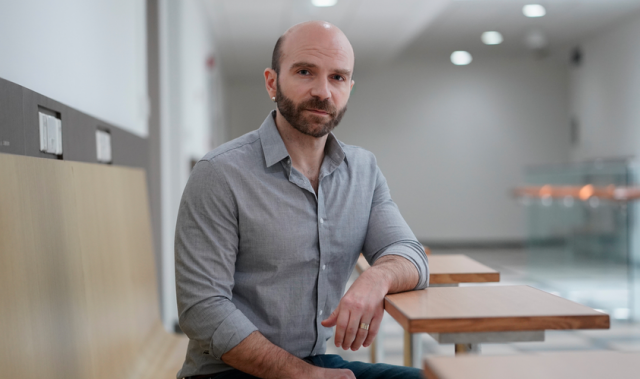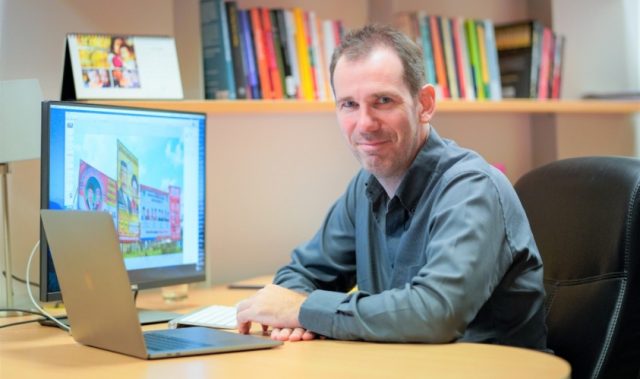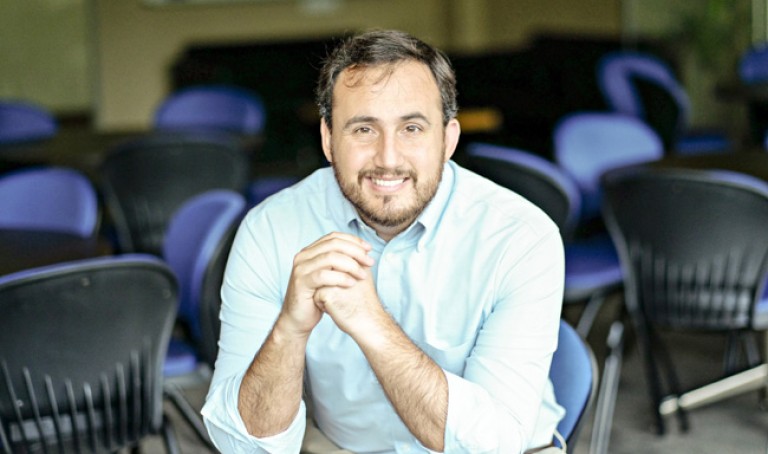
AsianScientist (Sep. 2, 2017) – By Sim Shuzhen – Addressing societal problems such as poverty and a lack of access to social services is an important priority for many governments. Yet, this responsibility cannot fall on governments alone. Instead, the betterment of society also requires ground-up leadership from motivated individuals and organisations.
Take the situation of migrant workers in Singapore, for example. For many, illness or injury can be a major setback, leaving them unable to work and with a hefty medical bill to boot.
In 2006, general practitioner Dr Goh Wei Leong found a way to help: He started HealthServe, a non-governmental organisation (NGO) that now operates several clinics offering affordable medical care to migrant workers, who pay S$5 per visit.
“As a medical doctor, Dr Goh has for decades treated his patients with the utmost care. But he also takes the time and effort to pursue his passion of reaching out to migrant workers, within his area of expertise,” says Mr Martin Tan, executive director of the Singapore Management University’s (SMU) Institute for Societal Leadership (ISL).
For Mr Tan, initiatives like HealthServe exemplify ISL’s concept of societal leadership – broadly defined as the practice of creating sustainable value and impact for the betterment of society, within one’s sphere of influence.
“It doesn’t matter if that sphere is big or small; what matters is that we choose to leave a lasting impact on society, wherever we are,” says Mr Tan.
Through its research, outreach and leadership development programmes, ISL generates new knowledge around societal leadership, creates platforms for leaders from different sectors of society to network and collaborate, and trains current and emerging leaders to take on important problems.
The power of narrative
Societal leadership is especially relevant in Asia, which is home to nearly two-thirds of the world’s population as well as to a plethora of languages, cultures, religions and geographies. The region’s diversity makes addressing complex issues such as climate change and poverty all the more challenging, says Mr Tan.
“No one government, NGO or corporation can solve these complex issues on their own,” Mr Tan explains. “What we need are leaders who are willing to put aside differences and collaborate across multiple sectors to bring about common good.”
But while a considerable amount of research has been done on leadership, this has mostly come from the management literature, which tends to examine the subject in a corporate context, says Dr Tay Wan Ying, head of research at ISL.
Ground-up civic movements, NGOs and social enterprises have different priorities—they are focused more on social impact and less on profits.
“For us, societal leadership centres on the need for leaders to look beyond their organisational interests, profits and bottom lines to focus on people and human lives,” explains Mr Tan.
“The social impact sector is growing, with more people taking action in their own various ways,” Dr Tay adds. “This necessitates a different way of looking at leadership, which we are trying to accomplish through our research.”
To glean valuable lessons from the lives of past and current societal leaders, ISL’s Digital Narratives of Asia project conducts in-depth interviews with influential, high-ranking Southeast Asian leaders from various sectors of society, including the late former Singapore president Mr SR Nathan, Lippo Group chairman Mr Mochtar Riady, and founder and president of LICADHO (Cambodian League for the Promotion and Defense of Human Rights) Ms Pung Chhiv Kek.
These personal accounts provide glimpses into the leaders’ motivations, the challenges they faced, and their reflections on leadership, as well as into the historical context under which they took up their positions. Dr Tay is currently using narrative inquiry methods to explore how momentous life events and turning points—especially during turbulent periods of history—shaped the development of these leaders.
Another ISL initiative, Catalyst Asia, highlights the stories of lesser-known individuals and organisations—such as HealthServe—that are working to address a range of social issues in Asia.
“These narratives and stories are a way of understanding the current times, and finding out what societal causes and trends people are paying attention to,” says Dr Tay.
From stories to big data
Such narratives not only serve as a rich resource of case studies, but also provide a starting point for research that further articulates the concept of societal leadership, says Dr Tay.
In particular, Dr Tay and her colleagues hope to pinpoint the key behavioural attributes that societal leaders tend to display. With this information, they plan to develop a societal leadership scale that will allow leaders to assess their own behavioural traits as well as those of their employees, and hence identify areas where improvement may be needed.
“We think this scale will be quite useful for people who are trying to alleviate certain social costs but who may not have prior managerial or leadership experience,” explains Dr Tay. “They have a lot of passion, drive and motivation, but we want to know how this translates into leadership skills—how they can bring others to their cause and sustain their businesses and organisations.”
In addition, as a follow-up to narrative inquiry methods, ISL researchers are also starting to explore the use of big data and social network analytics to monitor news articles and trends pertaining to societal issues, says Dr Tay. Through this analysis, they hope to better understand the relationships between societal leaders and their communities, as well as the impact of policies or initiatives.
Taking the long view
Since societal leadership as a field of research is relatively new, it can be a challenge to get people to understand and support ISL’s goals and vision, shares Mr Tan.
“This is especially the case because of our emphasis on sustainable value and impact. Much of what ISL wants to accomplish will take five to ten years to build and to obtain some level of results,” he says. “When we think in terms of such horizons, it is sometimes difficult to convince sponsors and donors to come on board, as the return on investment is not as clear or immediate.”
There is perhaps no investment that yields better returns than nurturing our youth. One of ISL’s longer-term projects, the highly selective Southeast Asian Global Undergraduate Leaders’ Programme (SEAGULL), aims to equip emerging leaders with the design thinking skills, problem solving abilities and hands-on experience needed to tackle complex societal issues. As part of the programme, participants work with Southeast Asian NGOs to understand the challenges they face, and then design and prototype solutions to address them.
Importantly, ISL hopes that SEAGULL participants will forge lasting relationships that will bode well for future collaborations.
“If they build strong enough networks and maintain them over the years, they will be able to work together when they eventually rise to leadership positions which perhaps allow them to push certain agendas further,” says Dr Tay. “That’s a longer-term outcome that we hope to see.”
ISL’s roadmap for the next few years is clear, says Mr Tan.
“If we can create new knowledge around societal leadership that can inform leaders, we can potentially create more good; if we can create more platforms for leaders across sectors to come together for conversations and collaboration, then we will have done what we want to do to make societies better.”
Asian Scientist Magazine is a media partner of the Singapore Management University Office of Research & Tech Transfer.
———
Copyright: SMU Office of Research & Tech Transfer. Read the original article here; Photo: Shutterstock.
Disclaimer: This article does not necessarily reflect the views of AsianScientist or its staff.












